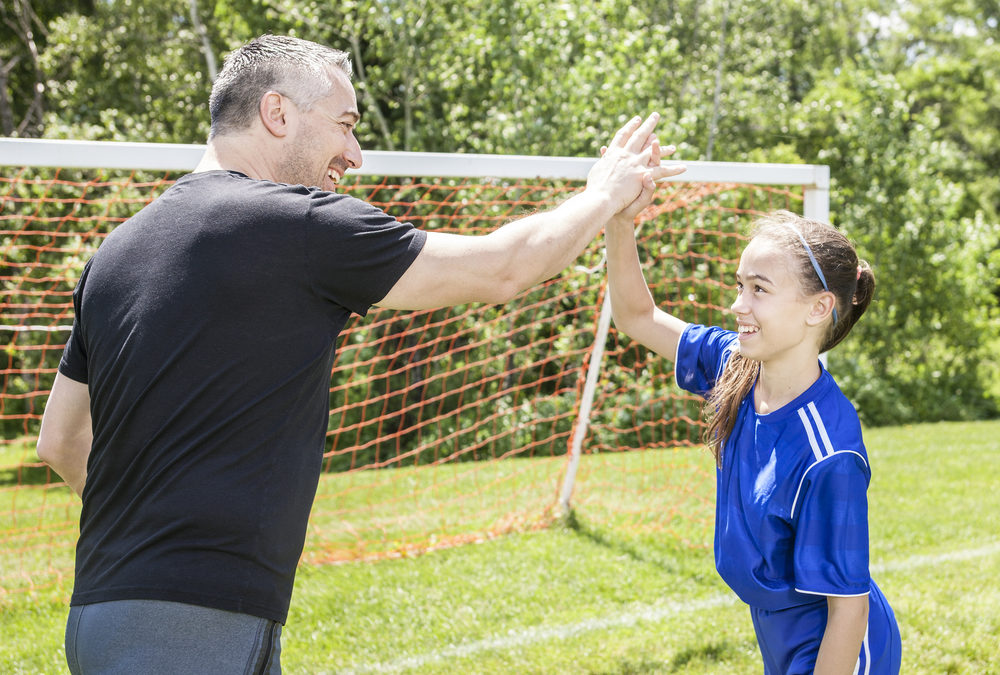I was honestly shocked.
I’m a high school athletic trainer who volunteers at numerous youth events. My heart breaks when I deal with athletes on the brink of physical and mental burnout before they are even upperclassmen! I love my sister and brother-in-law, but they classically fall into the current youth sports trend of doing EVERYTHING ALL THE TIME. Simply taking the time to realize “We need a break” is a powerful moment for any family.
March is National Athletic Training Month, and I am a firm believer in this year’s theme: “Compassionate Care for All!” I believe if we stop and look at sports from a compassionate view vs. a competitive view, there are endless opportunities for family growth.
This winter, my sister’s family has enjoyed less time driving to practices and games, less time on “snack duty,” fewer practices, fewer lessons, fewer drillings and fewer tournaments. Instead, they’ve enjoyed more family time, meals together, quality time with grandparents and free time on the farm.
There has been ZERO regret of their decision as a family to take a break from sports.
I am not saying their choice fits every family, but I did think it brought up a good question. How do we break that never-ending cycle of sports and ensure our kids enjoy sports the way we intended?
With spring around the corner, I want to share a few tips for “spring cleaning” your sports schedule.
1. Give Yourself a Pregame Talk
- Why is my child in sports? What do I want them to gain? Do you find yourself answering with statements that improve your child, or statements that make yourself feel better?
- Do you talk with your child before signing them up for sports, lessons, trainings sessions, etc.? More importantly do you really listen to their response?
- Do you ask your child if they are still finding joy in their activities?
- Have you noticed a significant change in their personality, attitude and performance in their activities? Burnout is often signaled by indirect clues and not always blunt statements on how they feel. Some children may drop hints that go unnoticed unless you directly ask how they are feeling about a sport.
2. Talk to Your Child
- Don’t look for yes or no answers. Ask follow-up questions.
- How are they holding up, physically and mentally?
- Allow them to be honest. Are they feeling tired, burnt out, worn down or exhausted? Do not be afraid to let them know if you have the same feelings or share them first. Parents can easily get burned out running from event to event.
- What are their worries and concerns right now?
- What are their joys? I have yet to find one parent whose heart does not melt when they see their child light up over something they are excited about.
- Find a time where they are not multi-tasking, in the car, over a meal, etc.
3. Connect with Their Life Away From Sports
- How is school going? There has been a lot of stressors in the news, and your child is likely worried over things you have not thought of as directly affecting them.
- How are their friends? Do they get to enjoy unorganized time away from sports with their friends or teammates?
4. Encourage a Social Media Break
- Are they feeling pressures due to social media?
- Are there expectations being put on them by virtual comparisons?
- Are they following athletes/role models that create a realistic expectation of themselves as athletes?
- Do they comprehend the difference from making statements on social media vs. working at their craft in reality?
5. Spring Clean Their Schedule
- Are there items on their schedule they could take a break from?
- Are there activities outside of sports they would like to try?
- Can you provide them downtime physically?
- Can you provide them downtime mentally?
Sports provide a wonderful opportunity for the children and their families. Sports can also be a very divisive force between families. There is fear and pressure often rooted from looking too far into a future that may never happen. Often, parents are given the advice their child must do all the select teams, extra lessons, specialized sport coaching or their child will never succeed. Those are real and true beliefs; however, burnout and resentment between families is also a real possibility.
Take time to spring clean your child’s sport schedule. Reconnect with your young athlete and build a stronger foundation between yourselves. You may be surprised at what you find out about your child and yourself. Better yet, you may find a stronger growth in your connection!

Rachel Hall
Health Expert









